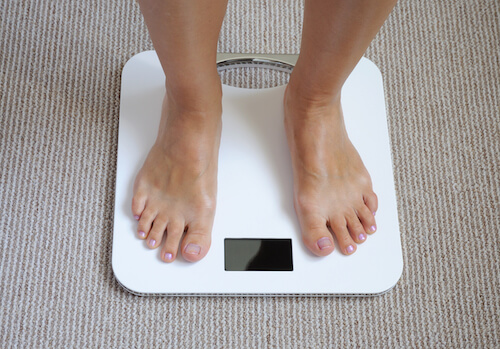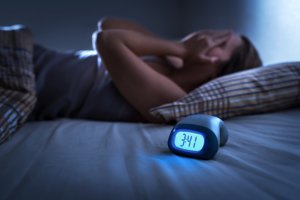5 Health Benefits of Dry January
January represents a fresh start, and one of the most popular goals in the new year is to be healthier. Americans typically increase their drinking during the holiday season, so January is a popular time to take a break from alcohol. Dry January is an initiative from Alcohol Change UK to encourage people to boost their health and quit drinking for 31 days.
While alcohol seems to help us socialize, relax, unwind, and have fun, there are certainly downsides to drinking. The thing is, they don’t appear for several hours after alcohol consumption, which means it’s sometimes hard to remember the negative physical and mental consequences when that “fun” drink is staring us in the face.
So, if you are participating in Dry January, or any dry month, here are some positive benefits you might see during the challenge. These five advantages just might help you stick it out through those 31 days—and beyond.
1. Healthier, Younger-Looking Skin
Alcohol suppresses an antidiuretic hormone called vasopressin, which causes the kidneys to excrete too much water, leading to dehydration and frequent urination. If you drink alcohol regularly, you may be dehydrated a large portion of the time. Alcohol can dehydrate your skin no matter how many creams or treatments you invest in, and dry, dehydrated skin wrinkles much faster than properly hydrated skin.
A 2019 study published in The Journal of Clinical and Aesthetic Dermatology looked at heavy drinking, smoking, and facial aging in women. This study found that heavy alcohol use, which is characterized by 8 or more drinks per week for women, was associated with increased facial aging in almost all features analyzed.
If you stop drinking, your existing wrinkles won’t magically disappear. However, you will likely see less dry skin, redness, and puffiness. In fact, a 2018 report on Dry January from the University of Sussex found that 54% of participants saw better skin from the month-long challenge. And in my experience, those mysterious dry patches on my face that wouldn’t go away no matter what product I tried finally disappeared when I stopped drinking.
2. Improved Digestion and Gut Health
Alcohol impairs the stomach’s ability to absorb nutrients and irritates the digestive tract. As an inflammatory substance, alcohol irritates and inflames the GI tract, leading to bloating and discomfort. Plus, studies have found that chronic heavy drinking initiates a process in the gut that leads to inflammation throughout the entire body. And that inflammation can be significant. In fact, after I quick drinking, I dropped a pant size with no change in weight.
This inflammation doesn’t just cause puffiness and bloating. A 2017 review published in Alcohol Research describes several studies that have observed how this inflammation induces changes in the gut microbiome, which increases permeability of the intestines (meaning things can get into our bloodstream that normally wouldn’t) and disrupts the immune system.
Heavy drinking also increases the ability of bad bacteria to thrive in the gut, leading to an overgrowth of bad bacteria and a disruption of the ratio between good and bad bacteria. A 2014 study published in Proceedings of the National Academy of Sciences (PNAS) looked at patients in a detox program with alcohol use disorder and high intestinal permeability. The study found that within 3 weeks, levels of good gut bacteria had significantly improved, and gut barrier function was the same as healthy counterparts.
3. Potential Weight Loss
Alcohol is a toxic substance, and the body prioritizes its elimination. But since the body can only do so many things at once, it deprioritizes other tasks when alcohol is around.
 Eliminating body fat is a task that is not necessary for our survival and can easily be deprioritized when resources are needed for processing alcohol. Thus, it isn’t just the excess calories in alcohol that influence weight gain or stubborn weight loss. It’s the deprioritization of fat elimination. And according to the University of Sussex, 58% of Dry January participants lost weight during the month-long challenge.
Eliminating body fat is a task that is not necessary for our survival and can easily be deprioritized when resources are needed for processing alcohol. Thus, it isn’t just the excess calories in alcohol that influence weight gain or stubborn weight loss. It’s the deprioritization of fat elimination. And according to the University of Sussex, 58% of Dry January participants lost weight during the month-long challenge.
It’s important to remember that weight loss is not a guarantee and should not be your only goal for abstinence. Rather, there are many factors that affect weight loss success, and alcohol is only one of them.
4. Increased Energy Levels and Better Sleep
While alcohol helps us fall asleep faster, that’s where the sleep benefits end. Alcohol actually disrupts the normal sleep experience.
With alcohol consumption, we have more periods of deep sleep in the beginning of the night, and as the alcohol wears off, we alternate between light sleep and waking up. In fact, according to an article published in the Journal of Neuropsychiatry and Clinical Neurosciences, chronic alcohol use is associated with sleep complaints in 35 to 91% of patients, whose main complaints include poor sleep quality, daytime sleepiness, and difficulty falling asleep.
 Even if you don’t struggle with an alcohol use disorder but drink regularly, you can quickly develop tolerance to the sedative effects of alcohol. A 2018 study published in Sleep found that healthy individuals who didn’t struggle with alcohol use disorder developed a tolerance to the “sleep aid” benefits of alcohol by night 6 after having approximately 2 standard drinks per night.
Even if you don’t struggle with an alcohol use disorder but drink regularly, you can quickly develop tolerance to the sedative effects of alcohol. A 2018 study published in Sleep found that healthy individuals who didn’t struggle with alcohol use disorder developed a tolerance to the “sleep aid” benefits of alcohol by night 6 after having approximately 2 standard drinks per night.
What’s more, alcohol disrupts your ability to enter REM sleep, which is the restorative type of sleep where your brain recycles toxins and processes memories from the day. When you stop drinking, you may experience a phenomenon called REM rebound, which can start to occur after roughly 5 to 6 days of abstinence. During this time, the brain begins healing, and normal sleep cycles resume. According to the University of Sussex, 71% of Dry January participants experienced better sleep, and 67% had more energy throughout the month.
However, REM rebound causes you to have more REM cycles and to stay in REM longer than you normally would. Since REM sleep is where we dream, you may have more dreams—and more nightmares. Combine this increased REM with anxiety about your recent break from alcohol, and you can experience drinking dreams, which are very vivid dreams where you are consuming alcohol. They feel real and can cause panic and feelings of guilt when you first wake up.
A drinking dream study done by Massachusetts General Hospital looked at more than 2,000 people in recovery and found that about one-third of participants had drinking dreams. However, according to that same study, these dreams decreased as the length of abstinence increased.
5. Lower Resting Heart Rate and Reduced Blood Pressure
A 2020 meta-analysis found that even 1 standard drink is enough to increase a person’s heart rate. Plus, heavy drinking will initially decrease blood pressure for 6 to 12 hours, and then blood pressure will increase as the alcohol wears off. And since alcohol causes dehydration, which decreases the amount of blood circulating through the body, the heart beats faster to compensate. Generally, the more alcohol you drink, the faster your heart beats.
After a night of heavy drinking, you may have jolted awake at 3 a.m. with a racing heart and anxiety. Once you stop drinking, you will hopefully observe that this 3 a.m. wake-up call stops happening and that your blood pressure and resting heart rate begin to reduce.
In my experience, my resting heart rate was 80-85 bpm, and my blood pressure was around 135-140/80 while I was drinking. During abstinence, my resting heart rate is 70 bpm, and my blood pressure is 110/60. These decreases in heart rate and pressure have had a major positive impact on how I feel throughout the day.
What Happens After Dry January?
Taking a month off alcohol is often associated with significant physical changes, which may include:
- Better sleep.
- Improved skin health.
- Reduced inflammation.
- Improved gut microbiome.
- Reduced gut permeability.
- Decreased heartburn.
- Lower blood pressure.
- Reduced resting heart rate.
- Less liver fat.
- Lower cholesterol.
- Reduced insulin resistance.
- Lower blood glucose.
Not bad, right? But if you decide to extend your period of abstinence, in month or two you will likely observe more mental benefits, such as improved focus, mental clarity, and emotion regulation.
However, even if you return to drinking, your month of abstinence will give you powerful knowledge about the effects of alcohol. And understanding the outcomes of your drinking, not just the positives in the first hour but the negatives several hours and even days later, can help you begin to re-evaluate your relationship with alcohol.
To learn more about author Gillian Tietz and her science-based insights on alcohol, check out the Addiction Talk Podcast (Episode 19) and The Science Behind Alcoholism, which feature her story and leverage her extensive knowledge on how alcohol impacts the brain and can lead to addiction.
